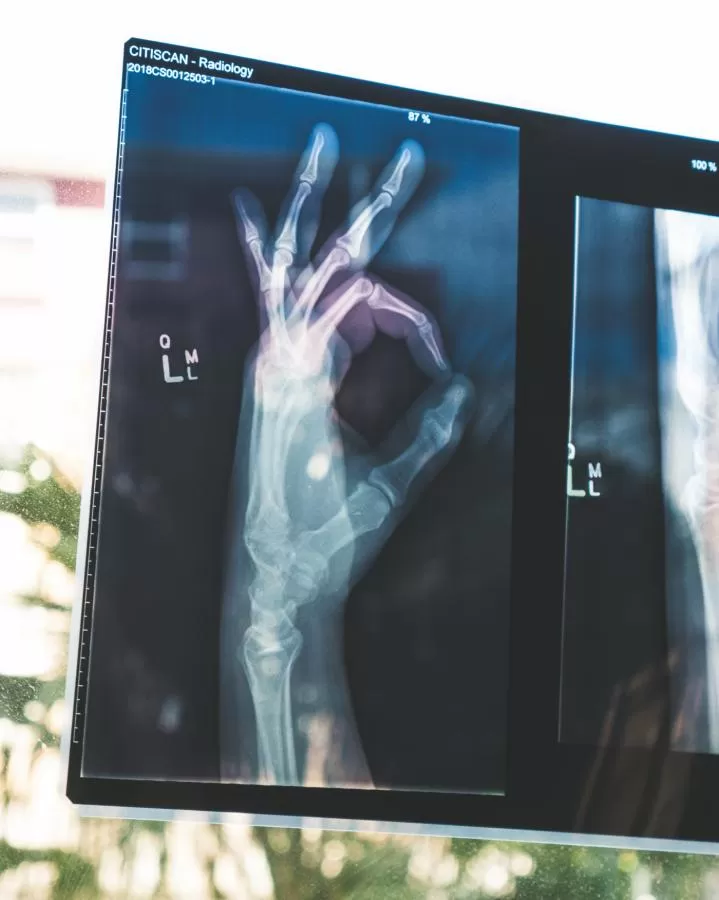Calcium and Osteoporosis Prevention
Published: 03/05/2018

Calcium is an important nutrient for people of all ages. Not only is it a major player in the prevention and treatment of osteoporosis, calcium is also vital to a number of basic body functions and may help in the prevention of hypertension as well. Take this time to evaluate how much calcium you get in your diet.
Osteoporosis is a condition of gradually weakening brittle bones. As bones lose calcium and other minerals, they become more fragile and porous. And they may break under normal use or from just a minor fall. Because preventing osteoporosis is a lifelong process, getting enough calcium early in life is an important first step. Peak bone mass is usually achieved by the late twenties. In the thirties and forties, calcium helps maintain bone health. At menopause, women lose bone mass due to a drop in estrogen. For postmenopausal women, getting enough calcium (and exercise) is critical to protecting bones, particularly if no hormone replacement therapy is used.
Children and teens, ages nine through 18, should consume 1,300 milligrams per day. For adults age 19 through 50, 1,000 milligrams of calcium a day is recommended. For those over 50, the recommended amount goes back up to 1,200 milligrams calcium daily for both men and women.
Dairy products are the best source of calcium, but many women, especially younger women, avoid dairy products because they fear weight gain. In fact, low-fat dairy products offer just as much calcium as their full-fat counterparts. Nevertheless, some women will need to take a calcium supplement. A registered dietitian or physician can help women decide if a calcium supplement is a good idea. If you're advised to take calcium supplements, keep these tips in mind:
- Read the label
- Avoid calcium supplements with dolomite or bone meal. They may contain very small amounts of lead and other metals.
- A calcium supplement is just that – a supplement that should not be your only important source of calcium
- Drink plenty of fluids with calcium supplements to avoid constipation
- Getting calcium in your diet can be easier than you think if you try and work it into your daily routine.
- Drink milk or fortified fruit juice during your coffee break
- Try flavored milk
- Enjoy calcium-rich snacks like yogurt, cheese and crackers, and pudding
- Order a latte or cappuccino (skip the fat by requesting skim milk) in place of black coffee. While caffeine can interfere with calcium absorption, consuming the amount of steamed milk typically added to latte or cappuccino readily offsets this effect.
- Choose other foods with more calcium such as dark green leafy vegetables, fortified fruit juices and fortified cereals
- Sprinkle ¼ cup shredded or sliced mozzarella cheese on top of a split bagel or English muffin. Microwave or heat in a toaster oven until melted.
- Top a baked potato with ¼ cup shredded cheddar cheese.
- Add a handful of shredded or thin strips of cheese to a mixed green salad.
- Make vegetable dips with plain yogurt or cottage cheese.
DAILY CALCIUM NEEDS*
| 4 to 8 years | 800 mg |
| 9 to 13 years | 1,300 mg |
| 14 to 18 years | 1,300 mg |
| 19 to 50 years | 1,000 mg |
| 51 to 70+ years | 1,200 mg |
*Dietary Reference Intakes (DRIs) for selected age groups.
Categories: Active Healthy Aging Health Conditions Supplements
Tags: #healthyhabits
Active Nutrition is a participant in the Amazon Associates Program, an affiliate advertising program designed to provide a way for websites to earn advertising revenues by advertising and linking to Amazon. If you click on one of my recommended item links and then place an order through Amazon, I receive a small commission on that sale, at no extra expense to you of course. This is a way to support me and my work every time you shop at no cost to you.





